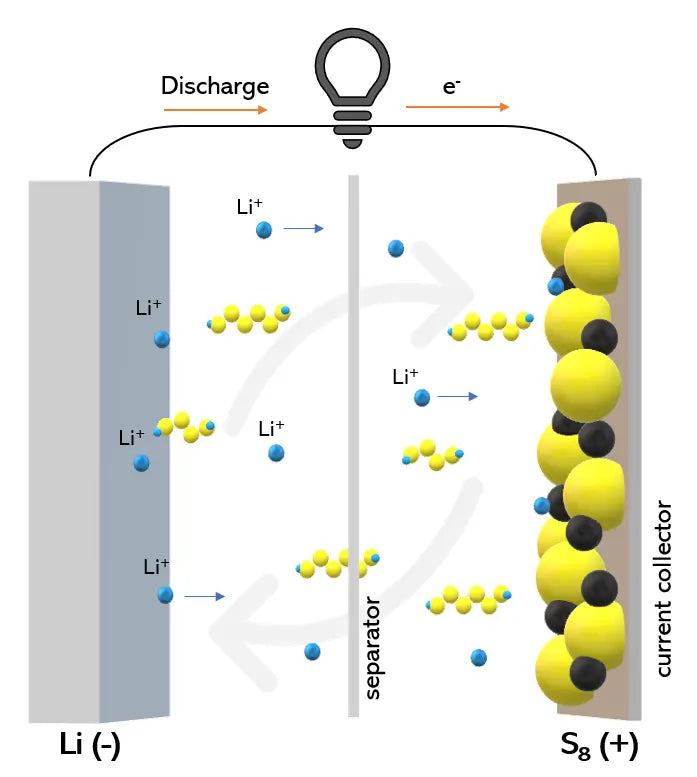Revolutionary Lithium-Sulfur Batteries: A Game-Changer for Energy Storage Technology
In the world of technology, few areas hold as much importance or promise as battery technology. From electric vehicles to smartphones and renewable energy storage, advancements in batteries have the potential to transform how we live and interact with technology. The latest breakthrough in this field is a development that could revolutionize energy storage: the advent of lithium-sulfur (Li-S) batteries. With an impressive energy density and a host of sustainable features, Li-S technology is a significant leap forward.
Understanding Lithium-Sulfur Batteries
Lithium-sulfur batteries represent an evolution from traditional lithium-ion batteries, which have dominated the market for years. While lithium-ion batteries have provided exceptional performance, they have limitations, such as a relatively short lifespan and environmental concerns tied to resource-intensive materials like cobalt and nickel. Lithium-sulfur batteries, on the other hand, use sulfur, a more abundant and environmentally friendly element, as the cathode material.
The fundamental advantage of Li-S batteries lies in their potential energy density. They can theoretically store up to five times more energy than lithium-ion batteries. This breakthrough comes from sulfur’s capacity to bond with lithium, enabling high-capacity energy storage. Imagine an electric car that could travel over 1,000 kilometers on a single charge or a smartphone that could last several days without needing to be plugged in. These possibilities could become a reality as lithium-sulfur batteries progress from the laboratory to commercial use.

Overcoming the Challenges
Despite the promise of lithium-sulfur technology, there have been significant hurdles in making it viable. One major challenge is the “shuttle effect,” where polysulfides formed during the battery's charge and discharge cycles dissolve in the electrolyte, causing rapid capacity loss and degradation of the battery over time. This issue has hindered the commercialization of Li-S batteries.
However, recent breakthroughs have addressed this challenge. Researchers have developed new materials and electrolytes that minimize the shuttle effect, significantly extending the lifespan of lithium-sulfur batteries. For example, incorporating carbon nanomaterials into the sulfur cathode can help contain polysulfides and prevent them from leaking into the electrolyte. Additionally, advancements in solid-state electrolytes are offering promising solutions to improve the stability and safety of these batteries.
Sustainability and Environmental Impact
One of the most appealing aspects of lithium-sulfur technology is its potential for greater sustainability. Sulfur is a byproduct of the petroleum industry and is widely available, making it a cost-effective and eco-friendly option. This addresses some of the ethical and environmental concerns associated with mining rare metals like cobalt, which are often used in lithium-ion batteries.
Moreover, the development of Li-S batteries aligns well with the global push toward greener and more efficient energy solutions. As governments and industries strive to reduce carbon emissions and dependence on fossil fuels, more efficient and environmentally friendly battery technologies will be key to unlocking the full potential of renewable energy sources.

What Lies Ahead
While the road to widespread adoption of lithium-sulfur batteries still requires more research and refinement, the progress made so far is undeniably exciting. Industry experts predict that we may see initial commercial applications in specialized fields, such as drones and electric aviation, where high energy density is especially critical. As the technology continues to mature, we can expect it to extend into electric vehicles, consumer electronics, and even large-scale energy storage.
In conclusion, the latest breakthroughs in lithium-sulfur battery technology represent a significant step forward in energy storage. With continued innovation and collaboration among scientists, manufacturers, and policymakers, we could be on the brink of a new era where longer-lasting, more sustainable batteries redefine our technological landscape. The promise of safer, more efficient, and environmentally friendly energy storage solutions is closer than ever, holding immense potential for a greener and more connected future.







